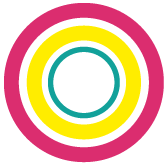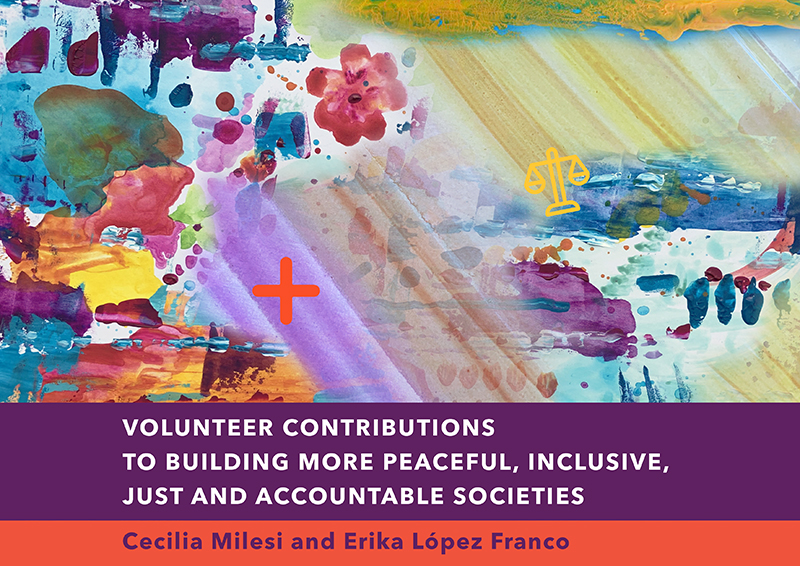Action to make the SDG 16 Plus goals a reality for all
How do volunteers and activists contribute to the achievement of SDG 16 (justice, peace, inclusion and accountability) adopted by all United Nations (UN) member states?
A challenge and a central question:
Are volunteers and activists really contributing to creating more just, peaceful and inclusive societies?
Governments and diverse organisations are currently looking for practical, simple and flexible ways to assess and document progress in achieving the SDGs. Countries have committed to account for how their societies and institutions are engaging, investing and working towards the SDGs. However, few governments and volunteer and activist organisations feel empowered – with clear knowledge, tools and strategies – to report how is it that volunteers and activists are working towards the achievement of SDG 16 on a daily basis.
In this context, Cecilia Milesi and Erika López Franco won the United Nations Volunteers (UNV) Global Innovation Challenge Award in 2020. With funding from the award, Cecilia and Erika created this adaptive framework to enable diverse volunteer programmes and initiatives (non-governmental and governmental), as well as volunteers and communities themselves, to record, reflect and systematize the multiple ways in which volunteer action is contributing to the achievement of SDG 16. .
What are the components of the adaptive framework?
The document presents a framework that will help organisations and governments to value, understand, recognise and celebrate how citizens – through volunteering and activism – promote accountability, contribute to peacebuilding and conflict prevention, particularly in contexts where violence or violent forms of community interaction are on the rise.
The document and framework present the following components that can be useful for organisations and governments to design and deeply assess the impact of volunteerism and activism in achieving SDG 16.
- 1. It recognises the need to remember the centrality of the nexus between peace and development in an era of increasing authoritarianism and closing civic space.
- 2. Calls for those citizens who are at the forefront of peacebuilding, justice and accountability initiatives to be central to any monitoring, evaluation, research and learning efforts as a route to democratising knowledge production.
- 3. It presents a process, using the principles and methods of participatory action research (PAR), for organisations to make use of the adaptive framework. Thus, people using the framework have “guiding questions and a step-by-step process to help organisations design, reflect on and consider the impact of volunteering and activism in their actions for peace, justice and accountability. .
- 4. Presents examples of organisations, networks and movements where volunteers and activists have been central to building more peaceful societies.
We co-create with organisations and governments processes to truly value the contribution of volunteers and activists to the achievement of SDG 16.
Accompanying diverse actors in using the framework
Cecilia and Erika are available to provide advisory services to support diverse organisations and governments who wish to use the flexible framework. The accompaniment is tailored to the specific needs and context of each organisation and can be done in person or online.
In short, this accompaniment and advice can be provided considering the three phases proposed by the flexible framework created by Cecilia and Eirka. For example:
- Phase 1: Design of context- and conflict-sensitive programmes and initiatives in a participatory and impact-oriented way for peace and development.
- Phase 2: Participatory diagnostics to monitor the performance of volunteerism and activism programmes and initiatives that are interested in adjusting their practices to respond to SDG 16 measurement indicators and measuring progress in promoting positive peace.
- Phase 3: Accompanying learning processes, mapping achievements against SDG 16 indicators (ex-post mapping).
Interested in learning more?
Individuals and organisations interested in finding out more about the framework and advisory services offered by Cecilia and Erika can contact
Cecilia Milesi: cecilia@ceciliamilesi.com
Erika Lopez Franco: erika.lopez.fra@outlook.com
Download the full version of the document here
UNV has also published a shorter version of this framework in an anthology, alongside the papers of the rest of the awardees. Available here

 Español
Español

